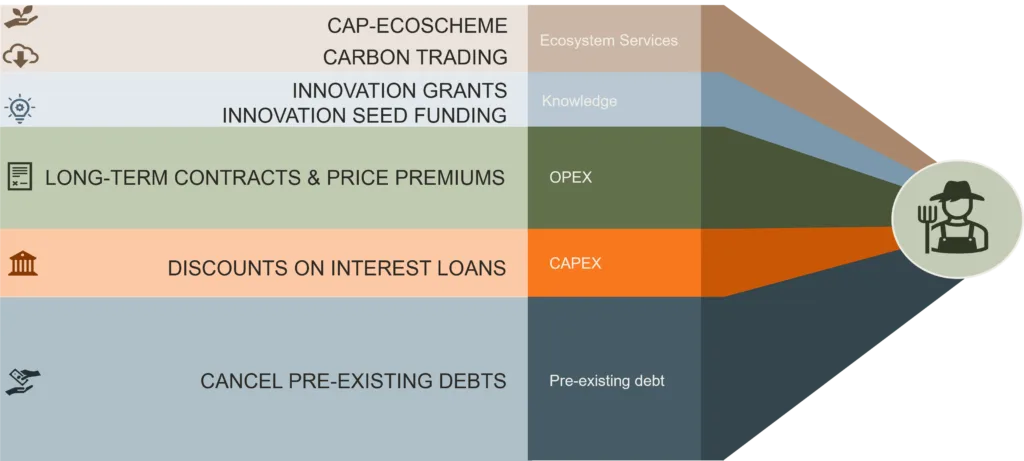
Unlocking Potential: How USAID Partnerships Enable Access to Climate Adaptation Finance
Unlocking Potential: How USAID Partnerships Enable Access to Climate Adaptation Finance
jschoshinski
Wed, 12/18/2024 – 17:45
This blog is the second in a series highlighting USAID Climate Adaptation Support Activity (CASA) support for the African Adaptation Initiative (AAI). The first blog explored the adaptation climate finance gap and CASA’s partnerships to build technical capacity for accredited entities to apply for funding from the Green Climate Fund (GCF).
Climate change is exacerbating existing vulnerabilities and threatening the livelihoods of millions of people around the globe. Africa is facing disproportionate impacts, with threats to food security, ecosystems, and economies fueling displacement and worsening the threat of conflict over limited resources across the region. Countries have articulated their priorities for addressing these climate risks in national policies and commitments.
USAID’s CASA supports the AAI to unlock critical adaptation funds from the GCF. In 2024, CASA continued this work by helping accredited entities apply for funding from GCF. Managed by national and sub-national governments, development banks, and other eligible institutions, these funds will enhance the region’s resilience to climate shocks and stressors.
The GCF is the world’s largest fund for mitigation and adaptation in developing countries. The Fund has committed 50 percent of adaptation finance to Least Developed Countries, Small Island Developing States, and African countries, representing 25 percent of overall GCF funds. Despite this commitment, eligible African entities, like national development banks, often need more technical capacity to complete the rigorous accreditation and proposal requirements to access the funding allocated to them.
AAI strengthens collaboration on adaptation through high-level pan-African and regional dialogues, large-scale adaptation action on the ground, and efforts to bridge the adaptation financing gap. With support from CASA, AAI collaborates with economist Sandra Freitas and her team of over 70 experts at SSA to build the capacity of African institutions to access GCF adaptation finance.
In 2024, CASA worked with AAI and the Sustainable Solutions for Africa (SSA) to develop the Adaptation Finance Academy, a structured training program covering GCF policies and procedures to build technical skills in climate analysis and modeling, financial structuring, economic impact assessments, and environmental and social safeguarding. This December, CASA and SSA will host the first Academy, bringing in more than 50 experts from up to 25 countries for two weeks of training.
The GCF proposal requires at least 22 annexes. You need climate scientists to do the climate rationale, project analysis, someone who understands GCF policies and asset modalities and templates, a project developer, financial technicians, and experts in whichever sector you are pursuing, from infrastructure to energy to agriculture. We have accepted the complexities of the climate finance ecosystem and are now focused on building capacity to work within these frameworks. We want to invest time and energy training the experts so they can thrive in the existing reality.
Sandra Freitas
Freitas’ team also provides on-demand support to GCF-accredited entities and government leaders to design and develop robust climate finance proposals. If these institutions successfully apply for GCF funding, it will help ensure that climate adaptation finance is more equitably distributed and programming decisions are made by the regions and countries most affected.
“We hope that after the Academy, they can return to their home countries equipped to develop a funding proposal or concept note because we have demonstrated how it can be done. It’s complex, but it’s not impossible.”
In Senegal, Freitas’ team works closely with one institution to develop a proposal to launch a climate-smart agriculture facility. This facility will establish a credit line to support smallholder farmers who are highly vulnerable to climate change and face challenges accessing finance. With GCF funding, the facility will provide financing, technical assistance, and capacity-building services to enhance agricultural productivity while reducing greenhouse gas emissions.
Ultimately, this collaboration between USAID, AAI, and their technical partners demonstrates that a relatively small upfront investment in technical training and capacity building can enable countries to better anticipate, plan for, and respond to future climate challenges.
Teaser Text
USAID’s CASA supports the AAI to unlock critical adaptation funds from the GCF. In 2024, CASA continued this work by helping accredited entities apply for funding from GCF
Publish Date
Wed, 12/18/2024 – 12:00
Author(s)
Hannah Blair
Hero Image
Ghana_PSE.JPG
Blog Type
Blog Post
Strategic Objective
Adaptation
Region
Africa
Topic
Adaptation
Agriculture
Climate
Climate Finance
Climate Strategy Implementation
Locally-Led Development
Resilience
Country
Senegal
Sectors
Adaptation
Climate Finance
Projects
Climate Adaptation Support Activity (CASA)
Show Download Link
On




